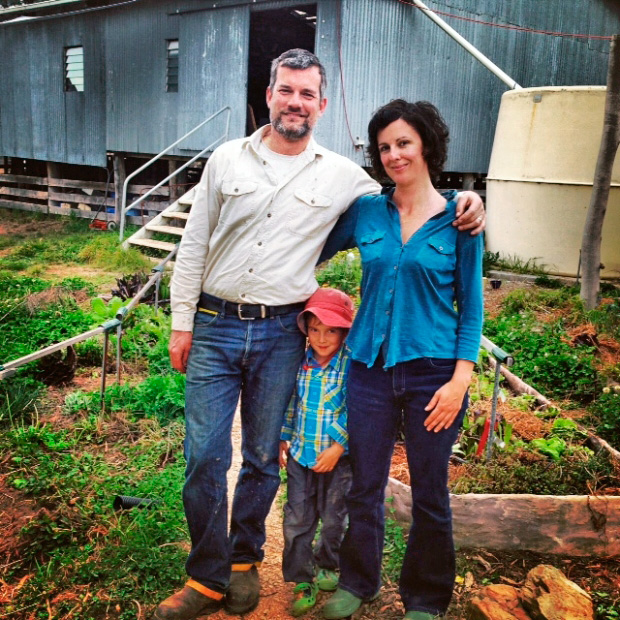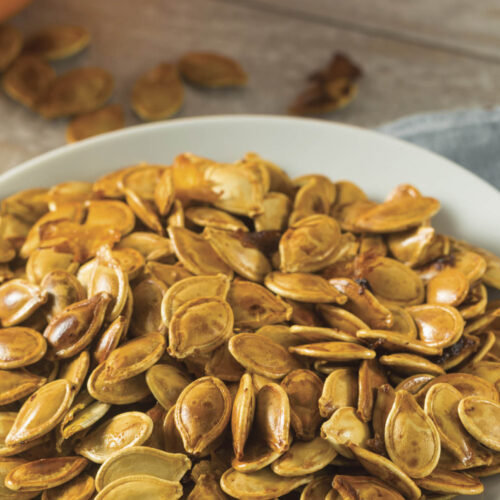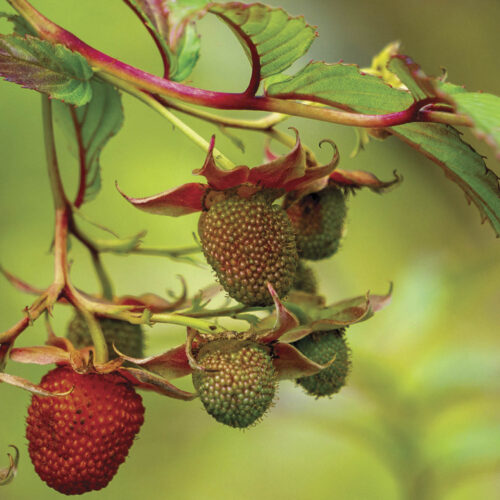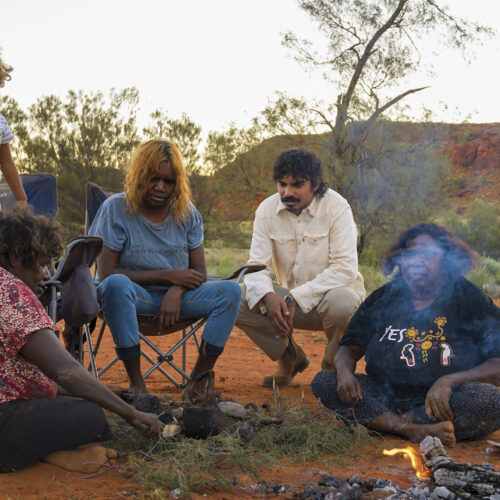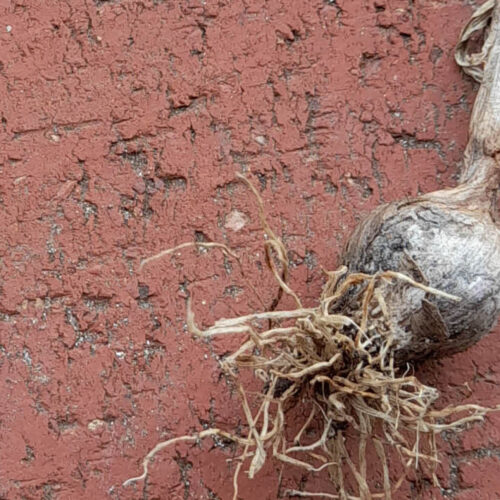Organic Gardener in conversation
2013-12-03T01:16:28+11:00
Organic Gardener speaks with Kirsten Bradley about the inspiration behind Milkwood Permaculture.
Organic Gardener speaks with Kirsten Bradley about the inspiration behind Milkwood Permaculture.
Organic Gardener (OG): What drew you (and Nick*) to life on the land in Mudgee?
Kirsten Bradley (KB): Nick’s parents made a tree change to Mudgee 15 years ago and they encouraged us to come and build a house here. Nick grew up in far western NSW where his father was a park ranger so he had an affinity with the bush. We wanted to simplify our lives and start a family but didn’t want to go into debt so it seemed like a good idea. Mudgee is an interesting town and we are surrounded by a whole lot of amazing farmers doing a lot of sustainable work.
OG: Tell us about your house?
KB: It’s a tiny house built out of recycled materials and designed to be passive solar so it’s warm in winter and cool in summer. We have a fuel stove and a wetback to heat water but also have a solar water heater on the roof. The construction is double skin wattle and daub walls with mud render and rock wool (spun rock) insulation. It isn’t the most environmentally friendly insulation but it is super inert so critters don’t want to live in it or destroy it. Plus it is fire-rated for safety. We foraged a lot of the materials like windows and doors but you find when you’re working with recycled materials that nothing is square or plumb so that provided challenges.
OG: What were you doing before Milkwood?
KB: We were based in Melbourne where I was working as a visual artist creating interactive installations for city festivals around the country, including site specific sculpture. Nick and I had been reading up on peak oil just before we moved here and we found that a lot of people were feeling negative and burnt out about the problems of the world. We wanted to do something positive because fear mongering is really disabling. I was proud to grow up around some very passionate, committed environmental activists, but I’ve also seen the personal fallout that a state of ongoing rage creates. Permaculture is positivistic. You may not be able to save the world singlehandedly but there are things you can do to make the world a better place in your community. You know, start at your back door and work out from there. I found permaculture empowering after trying for so long to get involved with effective change. I like to think of myself as an activator rather than an activist.
OG: So that’s why you started Milkwood?
KB: Yes. I didn’t intend to give up my art but we got here and got all enthused about playing a role in sustainable agriculture. We were inspired by permaculture because it represented everything we were trying to do with our art: looking at the patterns of nature and holistic design and thinking about how humans fit into nature and what constitutes natural in a post-natural world. We decided we should run courses in permaculture to help people find creative strategies to make things better.
OG: You also teach a broad range of skills under the banner ‘homesteading’. Do you think, as a society, we have lost the essential skills to provide for ourselves?
KB: I think the skills sleep within us. You see it the minute you get people into a sausage or jam making scenario. I think the memory muscle is still there. People respond hugely well to relearning these sorts of skills and the conviviality and sense of community that goes with it. On one hand we seem to have completely lost those skills but on the other I don’t think we are too removed from them, especially in the information age that we’re living in. Although technology has its downsides it’s also empowering because you’re only a couple of internet searches away from someone who is really passionate about making or preserving or growing and that can be a powerful starting point. Then, whether it’s physical training in the form of a course, or whether it’s a food swap or community preserving workshop, the knowledge is there and given the opportunity it will blossom. The current enthusiasm for homesteading is the future.
OG: Why is it important for people to continue to learn how to grow food?
KB: There is nothing more important than keeping that sort of knowledge alive. In the last six years, since starting Milkwood, it’s been amazing to watch how Australia as a society has moved subtly towards that ‘grow your own’ ethos. It seems like a small gesture but it is also a very large gesture and a conversation that we all need to be involved in at a household level. It is a movement that is gathering steam.
The knowledge to produce food is more and more important because the average age of market gardeners in Australia is nearly 70. I think we can rekindle homesteading skills quite easily but growing food on a community scale is something precious and we need to support the dissemination of that knowledge and support the people that are growing food so they can support their own families and keep doing it. There are so many generations of knowledge that have brought us to this point but because of the way the world is set up now we are losing that knowledge faster than we are replacing it. I love that we are sowing the seed of continuity of knowledge.
*Nick Ritar – Kirsten’s partner and co-founder of Milkwood Permaculture
To check out the profile on Milkwood Permaculture in the January/February 2014 issue of Organic Gardener magazine click here.

